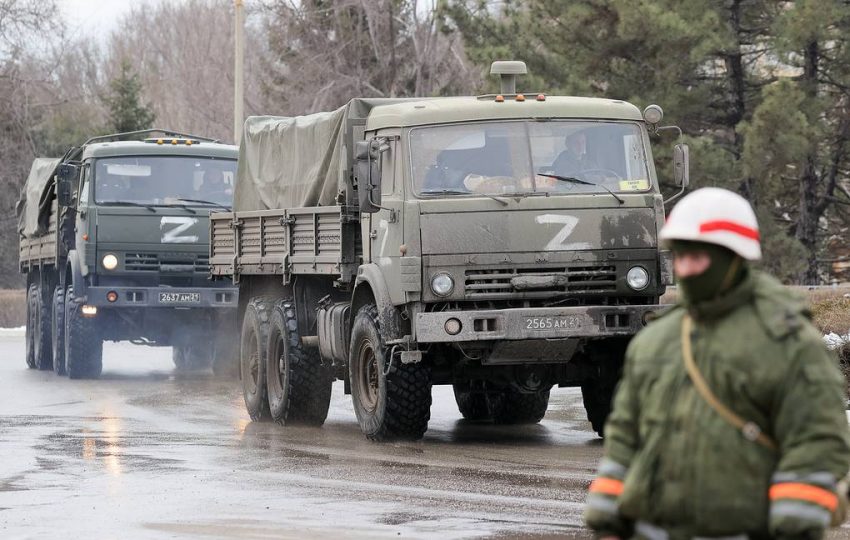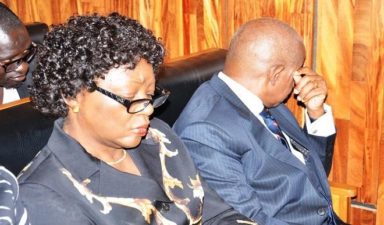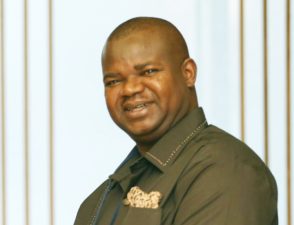Vedomosti: Russia launches official procedure for pulling out of Council of Europe
Russia’s notification about the withdrawal from the Council of Europe was handed over to the organization’s Secretary General Marija Pejcinovic Buric on March 15. On the same day, PACE held a meeting in Strasbourg to discuss the possible exclusion of Russia from the Council of Europe in connection with the special military operation in Ukraine. According to the organization, this comes in violation by Moscow of the Charter and runs counter to the commitments undertaken by Russia. The PACE decision is not legally binding, and the final word rests with the Committee of Ministers, which is scheduled to meet on March 17.
Deputy Speaker of Russia’s State Duma (lower house) Pyotr Tolstoy, who leads Russia’s delegation to PACE, told Vedomosti that the decision on leaving the Council of Europe was made at the height of the anti-Russian discussion at PACE. He stressed that Russia was pulling out from the Council of Europe at its own will and this was “a balanced and a well-considered decision.”
In any case, the procedure on the withdrawal from the Council of Europe won’t be swift, Deputy Chairman of the Federation Council (upper house) Committee on Constitutional Legislation and State Building Alexander Bashkin told the newspaper. A political decision has been made, but still the legal procedure is left, the senator noted. A rather large package of documents is required for denouncing treaties and the Committee of Ministers won’t consider the issue swiftly.
After Russia withdraws from the Council of Europe, access to the European Court of Human Rights will be cut off. But judging by the PACE agenda for the March 15 meeting and relevant documents, Russia’s implementation of the ECHR decisions is considered as ineffective in Europe and so the loss is not significant, lawyer Pavel Chikov pointed out.
Nezavisimaya Gazeta: Russia greenlights lifting oil embargo from Iran
Russian Foreign Minister Sergey Lavrov met with his Iranian counterpart Hossein Amir-Abdollahian on Tuesday to discuss previous agreements between the two countries’ leaders, the events in Ukraine as well as prospects for signing an agreement on the Joint Comprehensive Plan of Action (JCPOA), or the so-called nuclear deal. The day before, the US provided guarantees that the sanctions imposed against Russia would not hinder Moscow-Tehran cooperation. Judging by Lavrov’s statements, Russia will not obstruct the nuclear deal, but this should be considered as a forced step, Nezavisimaya Gazeta writes. As a result of the new deal, Iran could elbow out Russia, emerging as a key partner for the West in the field of energy, but Moscow can hardly do anything here.
“The talks in the Austrian capital were already at a crucial stage and even a draft final document was approved, and at that very moment, Russia announced that due to the anti-Russian sanctions its relations with Iran and bilateral cooperation could end in a deadlock. In legal terms, Russia cannot hinder the agreement, given that this is more like “a plan” rather than a full-fledged treaty. But in practice, the obstacles created by Russia could require finding a country that would undertake its commitments,” Senior Researcher at the Russian Academy of Sciences’ Institute of Oriental Studies Vladimir Sazhin told the newspaper.
The expert notes that judging by Lavrov’s comments, Moscow has received guarantees from the US that cooperation between Tehran and Moscow won’t be damaged. So, the deal is most likely to be reached, but the question is whether Russia will derive any benefits from this.
According to Sazhin, the fate of the deal is most likely to be decided in the coming weeks. The availability of Iranian oil to the global market will influence not only EU countries but also the US. Washington may also become Tehran’s trade partner. “US dependence on Russia’s oil imports is only 7% and they seek to recoup losses. It’s no coincidence that they are even in talks with Venezuela. However, the Republicans don’t want to buy oil from Tehran and Caracas. But probably, they will still have to purchase oil.” In this situation, Iran will enter the market “with its head held high,” the expert notes.
Izvestia: Russian forces take control of key region in Ukraine
The Kherson Region in southern Ukraine is now fully under control of the Russian forces, the Defense Ministry announced on Tuesday. In light of the recently restored railway traffic from the Kherson Region to Crimea, this is especially important, experts told Izvestia. Now, uninterrupted supplies for both the military and the citizenry will be ensured. Meanwhile, a humanitarian operation is underway in Mariupol, which the Russian armed forces call unprecedented.
Kherson was the first major city taken under control by the Russian military. This was officially reported on March 2. “The mere fact that now the entire region is under control of the Russian Armed Forces may have consequences for the course of the negotiations,” Senior Researcher at the Higher School of Economics Vasily Kashin said. “When negotiations on a truce or peace are conducted amid ongoing hostilities, the sides use such facts to reinforce their positions. Now, major combat actions are underway primarily in Donbass. A lot will depend on the actions in this area, in particular, Russia’s ability to eliminate the encircled grouping in Mariupol and to finally surround the remaining Ukrainian forces in Donbass,” he noted.
Moreover, having full control over the territory makes it easier to protect communications on the home front and step up the offensive further in the country, the expert said. “The Kherson Region’s railway network was connected with Crimea’s railways and trains started running there. This is essential as far as Russian military logistics is concerned,” he noted.
“We still don’t know the ultimate political goals of the military operation yet. They are not clearly formulated, which is probably natural given the course of the negotiations, but it is likely that the Kherson Region will be important as long as the operation is going on,” Kashin stressed.
Nezavisimaya Gazeta: China weighing whether to support Russia in Ukrainian crisis
Washington is cranking up pressure on Beijing, taking advantage of the current events in Ukraine. Chinese Foreign Minister Wang Yi emphasized that China and the Asia-Pacific Region will only benefit from the fact that they are staying out of the turmoil in Europe. The Chinese expert community mainly shares this stance. However, some analysts write that for the sake of maintaining its international image, China should distance itself from Russia, Nezavisimaya Gazeta writes.
In the light of the Ukrainian crisis, the countries of the Asia-Pacific Region and East Asia should appreciate stability more, as the West’s sanctions only fuel tensions, Wang Yi said at talks with his Indonesian counterpart Retno Marsudi. China jointly with Indonesia is ready to facilitate negotiations between Moscow and Kiev. This remark reiterates Beijing’s earlier declared stance that it does not want to get drawn into the conflict, maintains a neutral stance and calls for ending the hostilities as soon as possible.
“The political leadership calls the shots in the Chinese state system. But now things are not like during the times of Mao Zedong. Experts are allowed to voice different opinions. This is also the position of China. The Chinese leadership is very flexible. On one hand, it understands that all resources invested in the Russian-Chinese strategic partnership will be a waste should Beijing give up its moral support for Moscow. On the other hand, China has been saying from the very beginning of the events that it supports peace and a diplomatic solution. China criticizes the US, but is not positioning itself as a country fully on the side of Russia. This balancing act allows experts to draw harsh conclusions. But this is not the position of the authorities. This does not absolutely mean a split in the leadership,” Head of the School of Oriental Studies at the Higher School of Economics Andrey Karneev noted.
RBC: Russian regulator halts gold purchases from banks amid household demand
After resuming gold purchases from banks less than a month ago, now the Central Bank has decided to halt them amid the rising household demand for the precious yellow metal. The banks confirm the increasing interest in gold, especially in small gold bars. Major banks – Sber and VTB – registered a sharp spike in demand among retail customers in physical gold, as well as impersonal metal accounts in early March, RBC writes.
On February 28, the regulator resumed the purchase of gold from banks against the background of the US and EU sanctions on its gold and foreign currency reserves. As of February 18, the international reserves of the Bank of Russia totaled $643 bln. Gold, which is stored in the country, accounted for 20.5% of reserves (nearly 74 mln troy ounces). After the sanctions were imposed, the Central Bank stopped publishing data on its reserves. Finance Minister Anton Siluanov said due to foreign sanctions, Russia was cut off from access to nearly half of its gold and foreign currency reserves worth $300 bln.
What is encouraging Russians to invest in gold? On March 4, the State Duma (lower house) signed a bill abolishing the VAT on the purchase of gold bars. Earlier, customers had to pay a 20% tax and were unable to recover the VAT if they decided to sell the precious metal, and this made operations with gold unprofitable for the public, the Finance Ministry explained. On March 9, amid the Central Bank’s restrictions on the withdrawal foreign currency from accounts, Russian Deputy Finance Minister Alexey Moiseyev suggested allowing citizens to buy gold bars for foreign currency in cash. He said this move would help to overcome the negative consequences of sanctions. “This is indeed a very important step,” he said.
TASS, source of these review says, is not responsible for the material quoted in these press reviews




